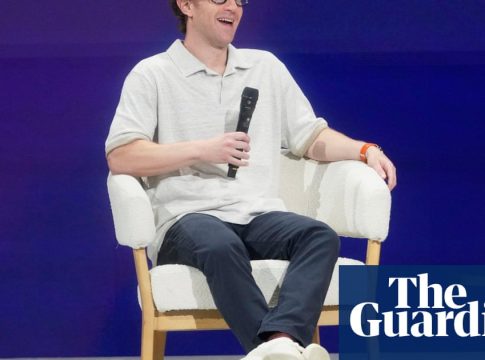Zuckerberg’s Quest for AI Talent: A Game-Changer for Meta
In an ambitious move to bolster its artificial intelligence (AI) initiatives, Meta CEO Mark Zuckerberg is reportedly on a mission to recruit some of the world’s top AI specialists. This endeavor comes at a time when tech giants like OpenAI, Google, Microsoft, and Amazon are pouring billions into AI research and development.
The Pursuit of Talent: An Unprecedented Strategy
Zuckerberg’s strategy involves a meticulous list of elite AI researchers and engineers from leading educational institutions, such as UC Berkeley and Carnegie Mellon. Rumors suggest that he is willing to offer lucrative compensation packages that could reach up to $100 million. This aggressive approach aims to attract talent away from competing firms, something that has stirred significant buzz in Silicon Valley.
Not only has Zuckerberg taken this task personally, but he has also convened a exclusive WhatsApp group dubbed the "Recruiting Party," where Meta executives strategize about potential hires. Recent graduates from prestigious PhD programs, currently employed at major competitors, have reportedly been discussing their interactions with Meta in informal chats, emphasizing the ripple effect of Zuckerberg’s outreach.
Major Investments: Setting the Stage for AI Development
This recruitment drive follows Meta’s substantial investment of $14 billion in Scale AI, a project that puts 28-year-old founder Alexandr Wang at the helm of Meta’s internal "superintelligence team." This lab focuses on creating a hypothetical AI system that exceeds human intelligence—an aspiration that, if realized, could revolutionize the industry.
Last month, doubts began circulating regarding Meta’s focus on AI after the company delayed the rollout of its flagship AI model, Behemoth. This has cast a spotlight on the company’s future direction, raising questions about whether it can effectively compete in an increasingly crowded AI landscape.
A Cultural Shift?
While Zuckerberg’s aggressive recruitment tactics have garnered attention, they have also elicited criticism. OpenAI’s CEO, Sam Altman, labeled the rumored signing bonuses as “crazy,” cautioning against prioritizing upfront compensation over mission-driven culture. He emphasized that attracting talent based solely on financial incentives could undermine team cohesion and long-term vision.
Implications for the Industry
Zuckerberg’s hands-on approach reflects a broader trend in the tech industry where talent acquisition is as fiercely contested as the technology itself. The implications are significant not just for Meta, but for the entire AI landscape.
As companies strive toward AI dominance, the battle for top talent will likely dictate the future of AI innovation. This recruitment frenzy signals a crucial shift in how companies approach talent and development—a lesson that extends far beyond Meta.
In conclusion, Zuckerberg’s ongoing efforts to build a powerhouse AI team could redefine Meta’s capabilities and set new benchmarks for the industry. As the race for AI supremacy heats up, stakeholders will be keenly watching how these developments unfold and what they mean for the future of technology.

Writes about personal finance, side hustles, gadgets, and tech innovation.
Bio: Priya specializes in making complex financial and tech topics easy to digest, with experience in fintech and consumer reviews.

